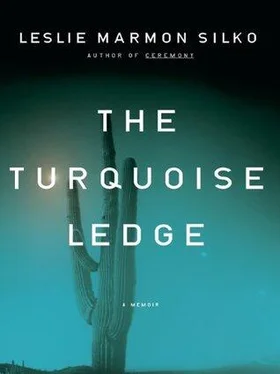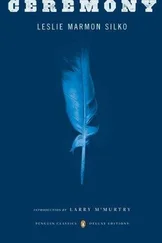If Grandma Whip was quick to take off the leather belt to whip her small grandchildren, imagine what Grandma Whip’s brother was like: he must have been the Devil himself with the whip on the little Navajo girls. After he whipped the young Navajo girls, what other perversions? Was he one of those slave dealers who participated in the drunken public rapes of young Indian girls at the slave markets? His abuse was unbearable, so the three older girls poisoned their torturer.
With the son of two prominent Los Lunas families dead at the hands of Indian “servants,” the local authorities could not afford delay. Copycats had to be discouraged immediately. The three young Navajo girls were hanged at once; only the youngest, Juana, was spared. Did other wealthy families of Los Lunas send their Indian “servants” to watch the hangings that day as a precaution? Did they make little Juana watch her sisters die? Did Juana understand then her last links to her family and people died with her sisters and there would be no reunion for her?
From her poisoned brother, Grandma Whip inherited the only remaining Navajo child to be her “servant.” Poor Juana came to be part of the strange cruel family of Grandma Whip and her husband the Mexican with the English surname.
Both my father and Grandma Lillie told me about the huge ring of keys Grandma Whip wore on the belt around her waist. Every door, every closet, every cabinet, cupboard and drawer in Grandma Whip’s house was locked at all times. When they visited and needed sugar for their coffee, Grandma Whip had to search among dozens of keys before she unlocked the cupboard with the sugar bowl. Grandma Lillie said all the locks and keys were because Grandma Whip didn’t want the servants to steal things, but maybe Grandma Whip wanted to make sure the rat poison stayed out of the sugar bowl.
My mother’s ancestors weren’t as well known to her as my father’s ancestors were to him. My mother’s maternal great grandfather, Grandpa Wood, was born in what is now Kentucky during one of the violent removals of the Cherokees from their homelands in North Carolina and Georgia. It was his daughter, my mother’s grandma Goddard, who taught my mother that the black snake in the cellar was their friend. The Cherokees revered snakes before Christianity arrived. So my mother taught me to respect but not to fear snakes.
In my second year at the University of New Mexico, money was scarce. My elder son Robert was a baby then, and my husband Dick Chapman was in graduate school. I had good grades but in those days all the scholarship money there went to male athletes. The only scholastic scholarship available was one offered by the Daughters of the Confederacy. The financial aid counselor suggested I find out if I had any relatives who fought for the Confederacy. I asked my mother and she told me the Leslies, her ancestors, fought for the Confederacy. I got the scholarship for my high grade point average; it was two hundred dollars split between two semesters.
The Leslie name goes back to Scotland and the Leslie clan. My mother said that her father, Grandpa Dan, had belonged to the Ku Klux Klan during the years he and Grandma Jessie lived in Georgia. My mother was very close to her father; they both wept easily and loved to drink. I remember Grandpa Dan with happiness until I got old enough to want to watch Hopalong Cassidy when Grandpa wanted to watch the Friday night boxing matches. The anger he directed at me that night so frightened me I did not feel the same about him ever again. Some years later when he died, I felt sorry for my mother’s loss and her sadness, but I didn’t feel sad; I was about six years old then.
Later on when I was in high school in the 1960s, I tried to track down Grandpa Wood, and our Cherokee relatives; not all the Cherokees went to Oklahoma — some of the Wood family hid out in the mountains near Asheville. But in those days the Cherokees were poor with no casino money, and few records were kept of those who had been born or who died during the removals.
Years before, when I was in grade school, our cousin Charlie Wood from western North Carolina worked for the Bureau of Indian Affairs as a community health worker at Laguna. He stayed at Laguna for a few years before he went back to North Carolina. We didn’t really get to know him. I’m not sure why. I remember he came to our house for supper a few times, but mostly we saw him when he came into the store to pick up the mail.
Maybe it was the liquor around our house that kept our cousin Charlie away. Alcoholic drinks were and still are illegal at Laguna. As a BIA public health worker it would have been awkward for Charlie Wood because he was very conscientious. He might have lost his job.
Now I realize how the alcohol in our house determined who might or might not be invited in spontaneously. People who possessed alcohol might be reported to the village officers who had the power to punish those breaking the law. In those days there were no tribal police or tribal jail; the elected village officers took care of keeping the peace in their village.
My mother was a bright well-educated woman, and a great teacher, but she was also an alcoholic. She came from a small Montana coal mining village. She told me she started drinking in the seventh grade when she and some school chums stole the wine her father and the other coal miners planned to drink after the union meeting.
I never thought of my mother as an alcoholic because she seldom got drunk or impaired by drinking, except at picnics and parties, and Christmas Eve and New Year’s Eve. I was used to seeing the dramatic, extreme alcoholism of the World War Two and Korean War veterans who were my cousins, so it was easier to fool myself about my mother’s drinking. She didn’t drink on the job and she never missed work, but after work and on weekends, my mother kept a coffee cup full of whiskey nearby.
Except for Grandma Jessie and her sisters, Aunt Sarah and Aunt Lucy, and my mother’s brother, Uncle Jack, my mother’s relatives were not only distant, they didn’t seem as interesting as my father’s relatives who were active presences in my life. Except for Aunt Lucy and her love for Cherokee Grandpa Wood, my mother’s relatives weren’t storytellers; and except for my mother’s brother, Uncle Jack, they weren’t colorful either.
Uncle Jack flew for the Navy in the Pacific in World War Two. Afterwards he was a crop duster in Fresno with great stories to tell about close calls and the crashes he walked away from. His children, my cousins John Leslie and Lana Leslie, were like brother and sister to my sisters and me while we grew up.
Every summer John and Lana spent eight weeks with us at Laguna. They always knew the latest music, dances and fashion because they were from California and were popular and cool — far ahead of the rest of the country. Their town had a big municipal swimming pool which was the focal point of their summer. So I was impressed that they preferred to spend their summers with us in New Mexico without a swimming pool, hiking in the hills, riding horses and helping my father sell fireworks for the Fourth of July.
We never got to go stay with John and Lana in California because the summer growing season was Uncle Jack’s busiest time to crop dust, and much of it had to be done at night when the fields were deserted. He needed quiet during the day so he could sleep. After high school we no longer saw as much of our cousins because they went off to college while we got pregnant and got married in college which wasn’t cool.
In the keynote address I gave to the American Indian Language Development Convention in Tucson in mid-June of 2007 I decided to look into the future to see what languages people here will speak five hundred years from now, and I realized everyone in the Southwest will speak Nahuatl, not Chinese, although Chinese will be the dominant language of finance and commerce world-wide, and everyone’s second language. I won’t go into the details of the decline of the English language here for lack of space.
Читать дальше












